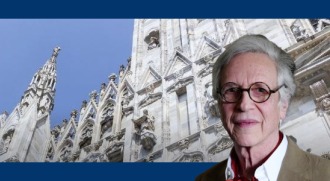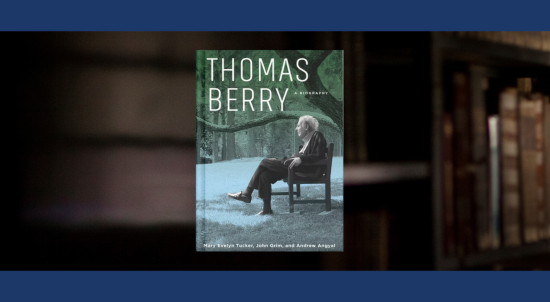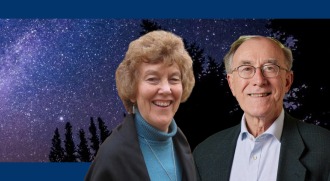
History of Early Modern Christianity: Reformation to Enlightenment
Published: Fall 2021
Description
This course introduces students to the rapidly changing world of early modern Christianity, a period that ranges from the Reformation to the Enlightenment and the Trans-Atlantic worlds of the eighteenth century. This age saw the dramatic expansion of Christianity beyond Europe to Africa, Asia, and the Americas, and the course will explore the global nature of the early modern world. Students will be exposed to a range of primary sources and historical methods, to examine rival interpretations and perspectives. The course will focus on the reading of a wide variety of primary sources from the period. Further, we shall engage in conversations about the complex relationships between legacies of the Early Modern Period and contemporary events through reading articles that raise controversial arguments.
Course Takeaways
- Explore the dynamic spread of Christianity beyond Europe during the early modern period, examining its impact on diverse cultures across continents.
- Develop critical skills in analyzing primary sources from this era, uncovering diverse perspectives on early modern Christianity.
- Discover the lasting legacies of early modern Christianity and their relevance to contemporary issues, engaging in discussions that bridge the past with present-day controversies.
Meet the Instructors
 A native of Canada, Bruce Gordon taught from 1994 to 2008 at the University of St Andrews, Scotland, where he was professor of modern history and deputy director of the St Andrews Reformation Studies Institute. His research focuses on European religious cultures of the late-medieval and early modern periods, with a particular interest in the Reformation in German-speaking lands. He is the author of Calvin (Yale University Press, 2009), a biography that seeks to put the life of the influential reformer in the context of the sixteenth-century world. It is a study of Calvin’s character, his extensive network of personal contacts and of the complexities of church reform and theological exchange in the Reformation. The Swiss Reformation (Manchester University Press, 2002) (an “Outstanding Publication” for 2003 by Choice Magazine) studies the emergence of the Reformation n the multi-lingual world of the Swiss Confederation and its influence across Europe in the sixteenth century. His book Clerical Reformation and the Rural Reformation (1992) examined the creation of the first Protestant ministry, which took place in the Swiss city of Zurich and its numerous country parishes. In addition, he has edited books on the development of Protestant historical writing, the relationships between the dead and the living in late-medieval and early modern society, the Swiss reformer Heinrich Bullinger, and, most recently, on biblical culture in the sixteenth century. He was the principal investigator of a major grant from the Arts and Humanities Research Council of the United Kingdom on Protestant Latin Bibles of the Sixteenth Century. The project explores the new translations of the Old and New Testaments by Protestant scholars into Latin during the Reformation and the questions posed by these extraordinary works for our understanding of translation, authority, material culture, confessional identity and theological formulation. The monograph is currently being completed. He has started work for Princeton University Press on a study of the reception of Calvin’s Institutes from the Reformation to the modern world. His teaching includes a lecture course on Western Christianity from the early church to the scientific revolution, and seminars on the culture of death, sources and methods of religious history, the Reformation, Calvinism, and the Reformed tradition from Zwingli to postmodernism. He teaches in the Department of History and in Renaissance Studies and works with graduate students on a wide range of topics in early modern religious history. He is on the board of various publishing series: St Andrews Studies in Reformation History (Ashgate), Zürcher Beiträge zur Reformationsgeschichte (Theologischer Verlag Zürcher), and Refo500 Academic Studies (Vandenhoeck &Ruprecht). He is a fellow of the Royal Historical Society and in 2012 received an honorary doctorate from the University of Zurich, Switzerland. (Presbyterian)
Full biography
A native of Canada, Bruce Gordon taught from 1994 to 2008 at the University of St Andrews, Scotland, where he was professor of modern history and deputy director of the St Andrews Reformation Studies Institute. His research focuses on European religious cultures of the late-medieval and early modern periods, with a particular interest in the Reformation in German-speaking lands. He is the author of Calvin (Yale University Press, 2009), a biography that seeks to put the life of the influential reformer in the context of the sixteenth-century world. It is a study of Calvin’s character, his extensive network of personal contacts and of the complexities of church reform and theological exchange in the Reformation. The Swiss Reformation (Manchester University Press, 2002) (an “Outstanding Publication” for 2003 by Choice Magazine) studies the emergence of the Reformation n the multi-lingual world of the Swiss Confederation and its influence across Europe in the sixteenth century. His book Clerical Reformation and the Rural Reformation (1992) examined the creation of the first Protestant ministry, which took place in the Swiss city of Zurich and its numerous country parishes. In addition, he has edited books on the development of Protestant historical writing, the relationships between the dead and the living in late-medieval and early modern society, the Swiss reformer Heinrich Bullinger, and, most recently, on biblical culture in the sixteenth century. He was the principal investigator of a major grant from the Arts and Humanities Research Council of the United Kingdom on Protestant Latin Bibles of the Sixteenth Century. The project explores the new translations of the Old and New Testaments by Protestant scholars into Latin during the Reformation and the questions posed by these extraordinary works for our understanding of translation, authority, material culture, confessional identity and theological formulation. The monograph is currently being completed. He has started work for Princeton University Press on a study of the reception of Calvin’s Institutes from the Reformation to the modern world. His teaching includes a lecture course on Western Christianity from the early church to the scientific revolution, and seminars on the culture of death, sources and methods of religious history, the Reformation, Calvinism, and the Reformed tradition from Zwingli to postmodernism. He teaches in the Department of History and in Renaissance Studies and works with graduate students on a wide range of topics in early modern religious history. He is on the board of various publishing series: St Andrews Studies in Reformation History (Ashgate), Zürcher Beiträge zur Reformationsgeschichte (Theologischer Verlag Zürcher), and Refo500 Academic Studies (Vandenhoeck &Ruprecht). He is a fellow of the Royal Historical Society and in 2012 received an honorary doctorate from the University of Zurich, Switzerland. (Presbyterian)
Full biography



